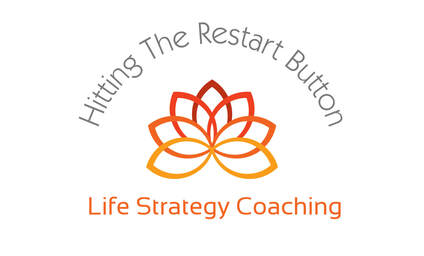|
Finances are usually the greatest source of worry when it comes to divorce. So what are the hard facts? Generally speaking, overall wealth decreases and individual spending increases when spouses separate, as a result of no longer sharing expenses and housing. However, the unfortunate truth is that after divorce, women are more likely to experience a significant household income drop than men. The same is true in comparisons of same-sex marriages. Lesbians who divorce are more likely to experience financial loss than gay men who divorce. Wealth Falls for Both Individuals After Divorce According to US data in a recent study, married individuals experience per person net worth increases of 77 percent over single respondents in the study and their wealth increases on average 16 percent for each year of marriage. Conversely, in the same study, divorced respondents’ wealth starts falling four years before divorce and they experience an average wealth drop of 77 percent. Divorce Affects Women's Wealth More Than Men's If we delve deeper, the statistics show that divorce has a lasting, negative impact on finances that, in heterosexual divorces, affects women the most. While women initiate divorce almost 1.5 times more often than men, this statistic does not always indicate their full preparedness for the financial reality of the separation. Most studies place the magnitude of the household income drop for women in the range of 23%–40% during the year following divorce. On average a woman can expect an almost 30% decline in her standard of living after divorcing, while men often see an increase of 10%. After a divorce is finalized, men hold 2.5 times the amount of wealth women do, and women’s household income falls 41% (compared to men’s 23%). How Can Women Prepare For Financial Hardship Prior to Divorce 1. Avoid Making Emotional-Driving Decisions Divorce can cause otherwise intelligent and even strategic individuals to make important decisions based on their feelings. Whether it be anger at the other spouse and a sense of retaliation or guilt over causing hurt to your partner, or fear about an uncertain future - making decisions from an emotional standpoint can and often does backfire. For women especially, who tend to lead with their emotions, the more you can keep yourself calm and as stress-free as possible (stress-free divorce? Now, if that isn't a huge oxymoron!) the more clearly you will be able to think and make decisions based on facts, figures and what is in your best interest now and moving forward. If you find it too difficult to deal with your ex-spouse for emotional triggering, work through your lawyer. In this way, you will insulate yourself and enable the best chance of looking at the realities in making decisions. 2. Have An Exit Plan Having a divorce plan that includes action steps that you will take before you tell your spouse you want a divorce, once you start the legal proceedings, and after the divorce is finalized, is imperative. During my own divorce, I did not have any plan. I knew I was terribly unhappy and wanted to have an emotionally better life for me and my daughters. Unfortunately, my ex-husband had been planning things on his end for a while, which I soon learned, and for which I was blindsided. Divorce coaching can help you to define your goals and be focused on the outcomes you want so you can create an action plan for each step of the way. Be sure to keep this plan in a place where your spouse or partner cannot find it, as it’s important to keep this plan private- it’s for your eyes only. 3. Build Your Divorce Team One of the most important things I've learned from my own divorce experience and working with others going through divorce is just how important it is to have a competent team of professionals in your corner for the best possible legal and business advice. This ensures that no stone goes unturned in any area of your life affected by your divorce, and that your future is well protected. Perhaps the most important members of your team throughout the process is an expert accountant/tax specialist as well as a financial advisor. A seasoned accountant, and one who has worked in the divorce space, will help you get clarity about the past financial trends in your marriage, what the implications are at present, and the anticipated effects this will have on your future post-divorce life. Their knowledge and advice can make a huge difference during the divorce agreement negotiation, as well as assist you with budgeting and planning in your day to day life. A financial advisor can provide expert insight into how a divorce may impact your long-term finances, and help you chart a post-divorce plan. A Certified Divorce Financial Analyst has experience and credentials related to navigating the financial aspects of divorce beyond that of your traditional financial advisor, says Samantha Garcia, a certified divorce financial analyst and wealth advisor at Halbert Hargrove. "There are many aspects that go into divorce, and not all advisors are skilled in knowing what questions to ask or what suggestions to offer when clients are going through a divorce." 4. Accurately Estimate Your Liquidity Needs Another way that women can avoid financial hardship is to plan for having access to enough cash for those significant expenses they will be shouldering alone. This incudes legal costs, which can add up quickly, but necessary to insure adequately funding divorce proceedings and enabling a strong legal strategy. From a day to day living standpoint, being aware of current expenses and anticipating the array of new, necessary expenditures during separation and divorce is vital. Purchases may include new housing, furnishings, automobile and other essentials. Lastly, it is critical to maintain long-term liquidity to fund your future goals, which should be taken into account and top-of-mind when reaching a settlement. According to Northern Trust. "Automobiles, boats and furniture are depreciating assets. Retirement accounts carry significant penalties and tax consequences if liquidated. Real estate can generate high carrying costs and on average only appreciates at the pace of real inflation. And even potentially profitable investments, such as a stake in a business or limited partnership, must be weighed against liquid assets you can use now to establish long-term security," Till next time, Elisa
1 Comment
Adam Minker
3/26/2024 12:42:33 am
Great insight
Reply
Leave a Reply. |
ELISA
|
|
Elisa Valentino
HOLISTIC BEHAVIORAL PRACTITIONER DIVORCE & LIFE TRANSITION COACH SPIRITUAL LIGHTWORKER PUBLIC SPEAKER PODCAST HOST |
©2024 Hitting The Restart Button



 RSS Feed
RSS Feed
